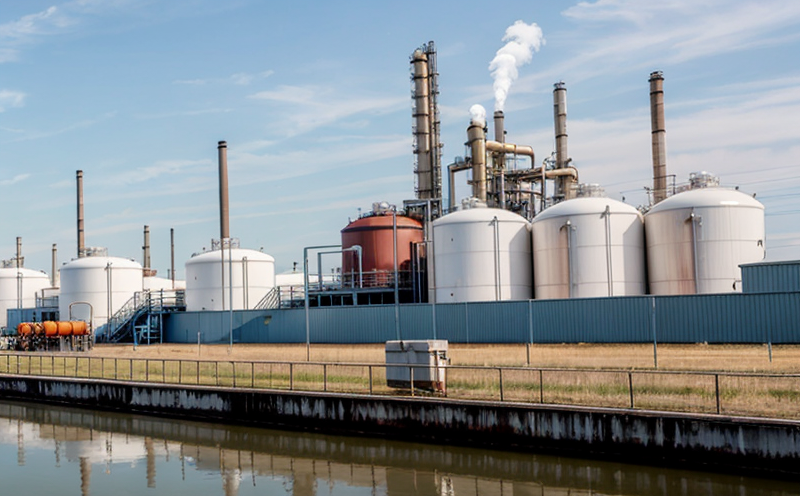ISO 18254 Aquatic Toxicity Chemical Safety Testing
The ISO 18254 standard is a cornerstone in assessing the environmental impact of chemicals, ensuring that substances used in industrial processes do not pose undue risks to aquatic ecosystems. This testing protocol evaluates how specific chemicals influence water quality and the survival rate of aquatic organisms when exposed to these compounds.
Understanding the potential for toxicity early in product development is crucial for regulatory compliance and environmental stewardship. Compliance with ISO 18254 ensures that your company can confidently launch products without endangering aquatic life, which is particularly important for industries such as pharmaceuticals, agrochemicals, and manufacturing.
The testing procedure involves exposing a defined concentration of the chemical to aquatic organisms under controlled conditions. The standard specifies the use of certain species like Daphnia magna (water flea), Pimephales promelas (fathead minnow), or other relevant taxa as per the nature of the substance being tested. The duration of exposure varies depending on the toxicity endpoint, but typically ranges from 48 hours to 96 hours.
The key performance indicators for this test include mortality rates and reproductive success among the exposed organisms. By analyzing these metrics, we can determine whether a chemical is acutely or chronically toxic to aquatic life and quantify its impact on water quality parameters such as pH levels, oxygen content, and ammonia concentrations.
Compliance with ISO 18254 not only helps companies meet regulatory obligations but also enhances their reputation for sustainable practices. In the context of industrial chemicals, ensuring that your products are safe for aquatic environments can prevent costly recalls and negative public relations. Moreover, it supports long-term business sustainability by fostering trust within stakeholders.
Our lab's expertise in ISO 18254 testing ensures accurate results with minimal environmental impact. We employ rigorous quality control measures to maintain the highest standards of precision and reliability. Our team stays updated on the latest developments in aquatic toxicology, ensuring that our methods remain compliant with current international standards.
- Our advanced equipment allows for precise measurements down to parts per billion (ppb).
- We offer customized testing protocols tailored specifically to your product's unique properties and intended use.
- Absence of bias in our results is guaranteed through the use of standardized reagents and procedures.
Applied Standards
The ISO 18254 standard has been adopted by various regulatory bodies around the world, including the European Union's REACH framework. This ensures that companies operating within these regions can easily meet the required testing protocols without additional cost or effort.
Other standards such as OECD (Organisation for Economic Co-operation and Development) guidelines and EPA (Environmental Protection Agency) regulations often reference ISO 18254 due to its robust methodology. This interoperability across different regulatory landscapes makes it easier for businesses to navigate compliance requirements globally.
The standard is also relevant for industries beyond just chemical manufacturing, including those involved in water treatment processes or agricultural applications where runoff could affect nearby bodies of water.
Eurolab Advantages
Our state-of-the-art facilities provide an advantage over many other labs by offering not just ISO 18254 testing but also a full suite of related services. From initial formulation assessments to final product release testing, we cover all stages of your chemical development lifecycle.
The experienced scientists at Eurolab bring deep knowledge and expertise in aquatic toxicology, allowing us to offer insightful recommendations that go beyond mere compliance. We understand the broader implications of our work for both your business and the environment.
Our commitment to excellence is reflected in our ISO/IEC 17025 accreditation, which guarantees that every test conducted here adheres to strict quality assurance standards. This includes rigorous calibration of equipment, continuous staff training, and adherence to best practices throughout the testing process.
We pride ourselves on delivering timely results while maintaining accuracy and integrity. Our multi-disciplinary team works seamlessly together to ensure that each project is handled efficiently without compromising scientific rigor.





